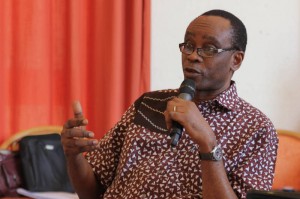The Global Greengrants Fund (GGF) recently convened a Summit on Women and Climate in Bali, Indonesia. In a letter to the Green Climate Fund (GCF), the GGF, in collaboration with the International Network of Women’s Fund and Alliance of Funds, calls for the creation of a strategy for influencing the GCF to fund grassroots work, as well as indigenous, women’s and youth-led climate adaptation and mitigation ventures. The four-year-old GCF is working on a business plan, prior to the distribution of funds
Dear Board of Directors and Alternates to the Green Climate Fund:
Global Greengrants Fund, the International Network of Women’s Funds, and the Alliance of Funds extend our warm greetings and encouragement as you enter your 8th meeting of the Board of the Green Climate Fund this week.

We write to briefly inform you of a recent Summit on Women and Climate, held on August 2-7, 2014 in Bali, Indonesia in which grassroots women climate leaders and grantmaking organisations that work in more than 170 countries convened to examine the landscape, strategies, and opportunities for increasing funding to women and women-led organisations around the world working to advance solutions for climate change mitigation and adaptation.
As you already know, women in the global south are more adversely affected than men by the impacts of climate change. And along with other groups, including indigenous peoples and youth, women are underrepresented in the decision-making spaces that establish the priorities for where and how climate finance is allocated. Furthermore, the contributions of women in the Global South as leaders in strategies of climate resilience, food security, low carbon agriculture, forest protection, and sustainable energy alternatives are largely not visible to typical funders and finance programmes, resulting in a crucial investment opportunity being overlooked. This has been well documented including in a recent article in the Asia Times entitled, “Carbon funds bypass Asian Indigenous Peoples.”
This problem is one that an already existing infrastructure of independent grantmaking organisations, based in 42 countries, can help address. These funds have been designed to deliver accessible funding to local environmental and women’s rights solutions in an effective manner and at a low transaction cost. The Greengrants Alliance of Funds consists of seven environmental funds with capacity to support grassroots environmental work in more than 100 countries through direct grantmaking and capacity building. The International Network of Women’s Funds unites 42 funds that work in 170 countries to advance women’s rights and empowerment by mobilising funding and capacity building for grassroots women’s organisations. Together our funds channel tens of millions of dollars a year to local, women-led organisations around the world in an effective manner with minimal transaction costs and we have the capacity to mobilise much more. In August, we committed to working together to channel more financial resources to local women-led climate initiatives around the world.
In your work this week we ask that you consider the tremendous need for climate finance resources to directly reach the community and village level, and to make further efforts to support initiatives that are led by women, indigenous peoples and youth.
In particular, we urge the Green Climate Fund to:
- Establish appropriate mechanisms and measureable goals to ensure that a significant percentage of Green Climate Fund resources directly reaches organisations led by women, indigenous peoples and youth to implement their strategies and solutions for adaptation and mitigation.
- Strengthen the important work already done in the Gender Policy and Action Plan by actively encouraging the involvement of grassroots women leaders in the design and governance structures of Sub-National, National, Regional and International Implementing Agencies and other distribution mechanisms for the Green Climate Fund.
- Consider, in discussions of modalities that further enhance direct access through funding entities, how the Green Climate Fund could partner with and leverage the existing global infrastructure of grassroots grantmaking organisations to cost-effectively channel resources to small, local, non-governmental organisations that otherwise would find it difficult to access financial support from the Green Climate Fund for their important work.
- Consider, in operationalising the Fit-for-Purpose Accreditation approach, how intermediaries funding community-led projects with small grants could be more easily accredited to work with Green Climate Fund resources.
We believe that the Green Climate Fund is obligated to directly support the crucial work that women around the world are leading at the local level to address the causes and impacts of climate change. Our own experience, directly funding thousands of such initiatives in more than 170 countries, demonstrates that this is possible to do on a large scale. We look forward to engaging in further dialogue with the Green Climate Fund about strategies to partner with and leverage existing philanthropic infrastructure around the world that is already providing direct financial support to those who are addressing the most pressing climate change challenges of our time.
Sincerely,
Nnimmo Bassey, Chair of the Board of Directors, Global Greengrants Fund
Artemisa Castro, Executive Director, Fondo Acción Solidária; Chair, Alliance of Funds, Mexico
Ibis Colindres, Executive Director, Fondo Vinculos Comunitarios, Honduras
Emilienne de Leon Aulina, Executive Director, International Network of Women’s Funds, Mexico
Anouk Frank, Programme Officer for Policy Development, BothENDS, The Netherlands
Aisling Nolan, Operations Manager, Small Change Fund, Canada
Teresa Odendahl, PhD, Executive Director, Global Greengrants Fund, United States
Nonette Royo, The Samdhana Institute, Indonesia
Maria Amalia Souza, Founding Executive Director, Socio-Environmental Fund CASA, Brazil
